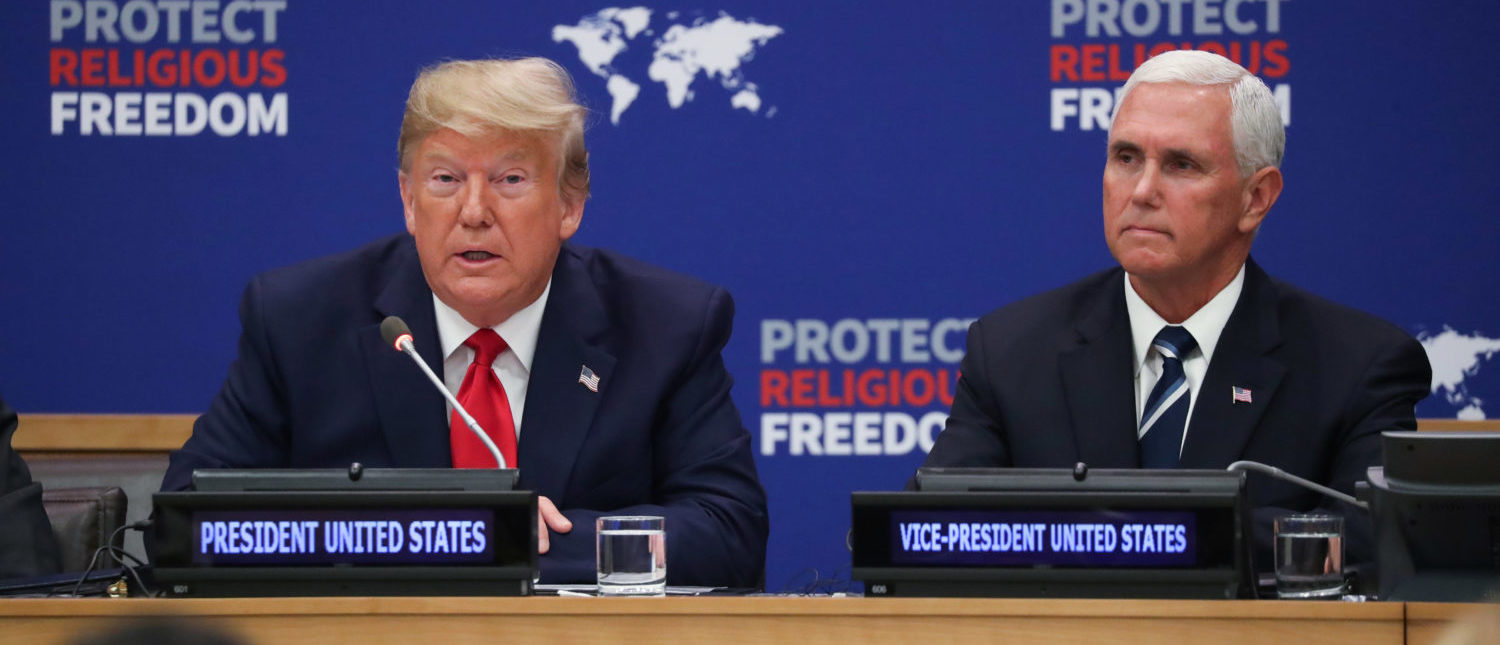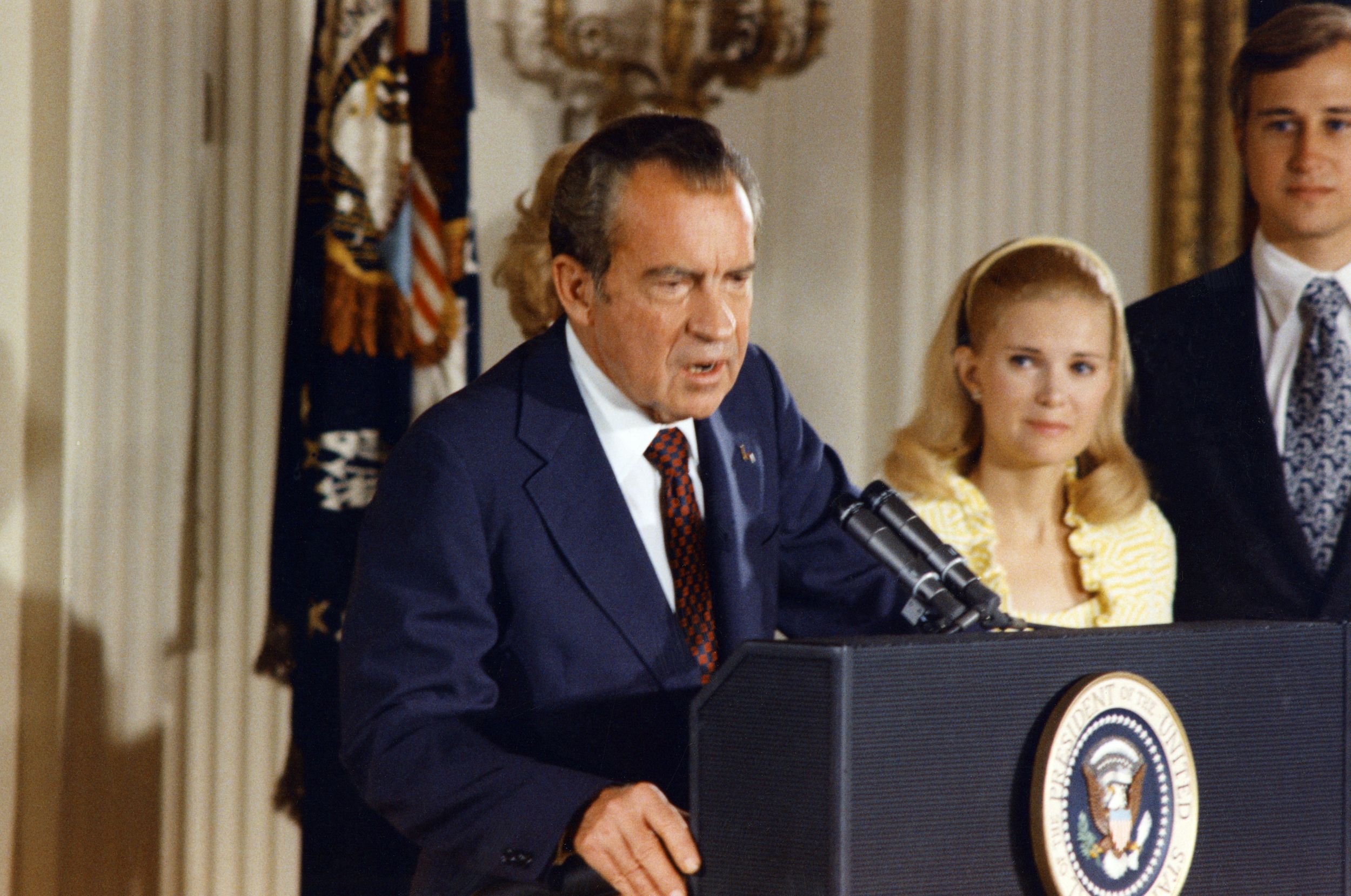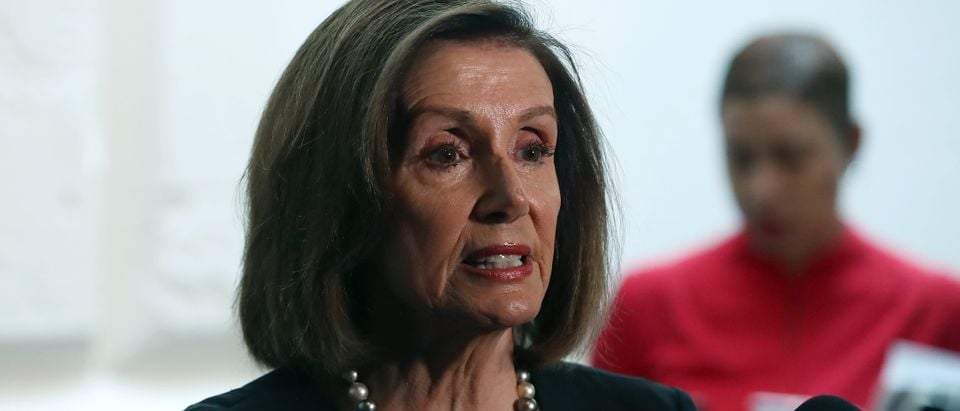According to the Presidential Succession Act of 1947, the Speaker of the House Of Representatives is third in line to replace a sitting president.
So does that mean there’s a possibility of a President Nancy Pelosi if the current holder of that office is impeached and Vice President Mike Pence is somehow rendered ineligible for the task? Yes, anything can happen, Robert Atkins and Adam P. Frankel wrote in an oped, but it would take the successful transformation of a lot of “ifs” into hard facts.

U.S. President Donald Trump attends the “Global Call to Protect Religious Freedom” event with Vice President Mike Pence at U.N. headquarters in New York City, New York, U.S., Sept. 23, 2019. (REUTERS/Jonathan Ernst)
The oped notes that a potential Pelosi presidency has occurred to others as well, and Atkins and Frankel cite the hashtag #PresidentPelosi trending throughout social media ever since the House Speaker agreed to commence a formal inquiry into impeachment proceedings against President Donald Trump.
“It may seem far-fetched that President Trump and Vice President pence would be forced from office over abuse of power related to the administration’s dealings with Ukraine or other misdeeds,” Atkins and Frankel write. (RELATED: Pelosi Reportedly Says Impeachment Too Good For Trump, Should Be ‘In Jail’)
Moving from the current objective of House Democrats to impeach Trump — a scenario that former Independent Counsel Ken Starr said was “doomed to fail” — the oped examines the situation in 1973 when then-President Nixon was awash in the Watergate scandal and his vice president, Spiro Agnew, had just resigned over allegations of tax evasion.

President Richard Nixon bids farewell to the White House staff. (White House/AFP/Getty Images)
At the time, Oklahoma Democratic Rep. Carl Albert was the Speaker and with Agnew gone, Michigan Republican Rep. Gerald Ford yet to be confirmed as the new vice president and Nixon in danger of impeachment, he was posed to become the next president. (RELATED: Report: House Democrats Will Use John Dean As Impeachment Draw)
The potential Constitutional crisis was not lost on political insider Ted Sorensen, a former top advisor to President John Kennedy, who took it upon himself to advise Albert on his options in a Nov. 8, 1973 memo, Atkins and Frankel write.
The Democratic supporter advised Albert to keep the memo absolutely secret because, “If discovered,” the correspondence “might be misinterpreted as evidence of an improper motivation on your part for the President’s ouster.”




